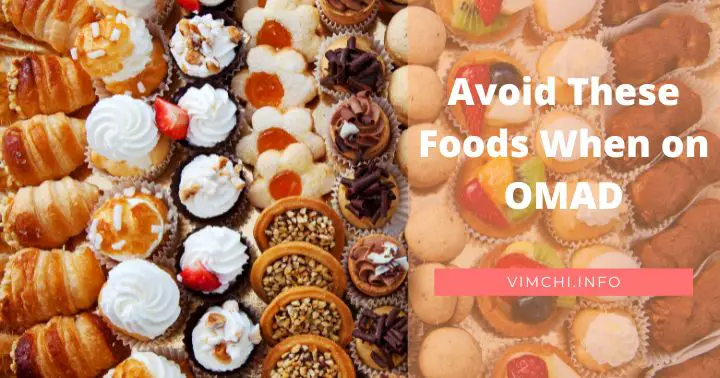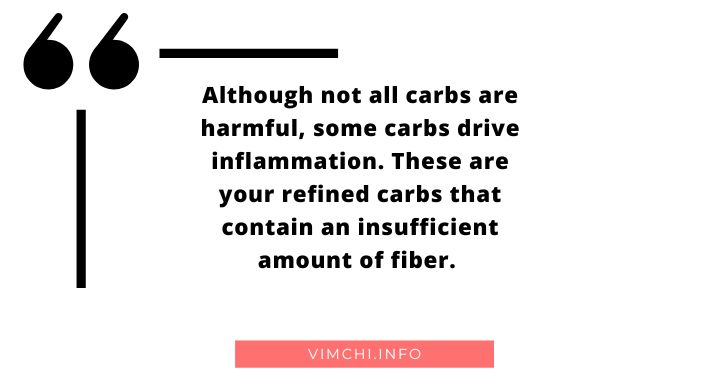
Eating one meal a day (OMAD) means you restrict your eating to one meal. One reason people are hooked to this plan is that they thought they could eat anything. Unfortunately, it doesn’t always work that way. There are OMAD foods to avoid.
What are they? Let’s find out here.
OMAD Foods to Avoid
When you’re on the OMAD diet, you can eat anything, as long as you are within your calorie limit. But just because you can eat anything, it doesn’t mean that you should.
Here are some of the foods that you must avoid while following this diet.
Inflammatory Foods
Inflammation is good. But it depends on the situation.
Remember that it is your body’s way of protecting itself when you are sick. It defends your body against illness by stimulating healing.
However, if it is chronic inflammation, it is linked to life-threatening diseases, such as diabetes, obesity, and heart disease.
Sugary Foods
They are part of a Western diet. Sugary foods are rich in harmful sugars that only increase inflammation, leading to various chronic diseases.
This study showed mice developing breast cancer that metastasized to their lungs because of high sucrose diets.
Even if you consume omega-3 fatty acids, which offer anti-inflammatory effects, the effects are impaired by following a high-sugar diet.
Sugar is harmful as it supplies your body with an extra amount of fructose.
What are these sugary foods? Chocolate, cakes, cookies, candies, sweet pastries, and cereals.
Artificial Trans Fats
Not all fats are the same and not all fats are healthy.
Among the types of fats, artificial trans fats are the unhealthiest. These fats are formed by adding hydrogen to unsaturated fats.
Unsaturated fats are liquid. When hydrogen is added, it makes fats more solid.
Artificial trans fats cause inflammation and increase the likelihood of disease risk, according to this study.
Furthermore, they lower the good cholesterol while impairing the function of the cells that line your arteries.
What are these artificial trans fats? These are your favorite French fries, microwave popcorn, margarine, pastries, cakes, and cookies.
Essentially, all processed foods are high in artificial trans fats.
Vegetable Oils
You might think that they are healthy, after seeing the word “vegetable.”
However, some scientists believe that these oils promote inflammation because they are high in omega-6-fatty acids.
Some omega-6 fats are indeed vital. You will only need some of them.
What you need are omega-3 fatty acids. These fatty acids are more beneficial because they contain anti-inflammatory benefits.
By eating omega-3 fatty foods, you are improving the ratio between omega-6 and omega-3.
This study showed that rats eating a balanced level of omega-6 and omega-4 had higher levels of inflammatory markers.
Refined Carbs

Although not all carbs are harmful, some carbs drive inflammation. These are your refined carbs that contain an insufficient amount of fiber.
Keep in mind that fiber promotes fullness. It also improves your blood sugar level while feeding your gut with beneficial bacteria.
This study showed that refined carbs could increase your risk of IBD and obesity. Furthermore, these carbs have higher GI compared to unprocessed carbs.
Processed Meat
Eating processed meat regularly will only increase your risk of heart disease, diabetes, and colon cancer, according to this study.
Examples of processed meat are bacon, ham, smoked meat, and beef jerky. But bacon can be safe if you don’t eat the processed type.
Instead, opt to buy unprocessed bacon slices from the supermarket. If it is time for you to cook, just add salt.
You may fry it with ghee. If you’re following a keto diet, ghee is the most recommended type of butter.
Allergenic Foods
You don’t want to experience gastrointestinal upset when you’re only eating one meal a day. Hence, avoid allergenic foods.
These foods can only lead to a leaky gut. What are these foods?
- Cow’s milk. Allergy to this milk is often seen in young kids. However, children will outgrow it when they reach 3. Thus, allergies to this milk in adults are less common.
- Eggs. They are a common food on OMAD. Eggs are high in protein and healthy fats. Unfortunately, some people can be allergic to eggs.
- Nuts. Some people are just allergic to nuts. Thus, even though Brazil nuts, cashews, pistachios, and pine nuts will help you get through OMAD, you can’t eat them if you are allergic to them.
- Wheat. Allergic to wheat can cause digestive distress. Its symptoms may be the same as celiac disease. However, a true wheat allergy can cause severe and fatal reactions.
Avoiding Some Foods on OMAD
One of the benefits of OMAD is that you can eat anything, as long as you are within your recommended calorie intake. But you should avoid consuming those foods mentioned above to avoid upsetting your stomach.
If you need ideas on what to eat when on OMAD, you may try these healthy satisfying meals here and here.
Speak Now ... Or Forever Hold Your Peace